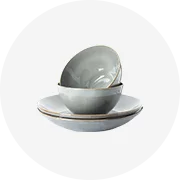
E.P Factory Customize High Efficiency Friendly-Environment Professional Pressing Coconut Shell BBQ Coal Ball Press Machine


TOP SELLING VIETNAM COCONUT BOWLS/COCONUT SHELL BOWLS HANDMADE AND COCONUT SPOON GIFT SET FOR FOOD CHEAP PRICE


















The coconut shell is the natural outer covering of a coconut fruit, harvested from the coconut palm. This rigid, woody shell is not only a byproduct of the coconut industry but also a versatile and sustainable material with a wide range of applications.
The coconut shell is renowned for its hardness and durability. This inherent strength makes it an excellent material for various applications, ensuring longevity and resilience in different environments. Harvested from coconuts, a renewable resource, coconut shells are inherently sustainable. Utilizing coconut shells contributes to waste reduction and supports eco-friendly practices. Coconut shells boast a unique, natural texture and appearance. From the distinctive pattern of the coconut husk to the smooth interior, each shell carries a character that adds aesthetic appeal to various products. Despite their robust nature, coconut shells are surprisingly lightweight. This feature enhances their usability in crafting products without adding unnecessary bulk.
Artisans often transform coconut shells into a variety of eco-friendly crafts, including jewelry, home decor items, and accessories. The natural texture of the shell adds an earthy charm to these creations. Coconut shells are a key source for activated carbon production. The porous structure of the shell makes it an ideal material for creating activated carbon used in water filtration and air purification systems. Crushed or ground coconut shells, known as coconut coir or coco coir, are used as a growing medium in horticulture and gardening. This organic and sustainable alternative to traditional soil promotes healthy plant growth. Coconut shells are widely utilized in the creation of handicrafts and ornaments. From bowls and utensils to intricately carved decorations, artisans leverage the versatility of coconut shells for unique and sustainable creations.
Intact coconut shells are often used as natural bowls or decorative pieces. Their unique shape and texture make them a popular choice for serving food or displaying items. The carbonized form of coconut shells, known as coconut shell charcoal, is a popular fuel source and is also used in various industrial applications, such as metallurgy and gold refining. Processed coconut shell products include a diverse range, such as coconut shell bowls, cups, utensils, and even coconut shell-based charcoal toothbrushes. These products showcase the versatility of the material in daily-use items. Coconut coir, derived from coconut shells, is commonly used in gardening and horticulture. It serves as a natural and sustainable substrate for plant growth. There are also various kinds of decorative coconut shells, such as coconut shell necklaces and coconut shell earrings.